The Atik Horizon II is the follow up to the first Atik CMOS Camera developed for deep sky astrophotography. Whilst maintaining the core elements of the initial Horizon such as its 16MP CMOS sensor with a 21.9mm diagonal, its evolution comes in its variety. Now offering three modes – Normal, PowerSave, and Fast – the Horizon II can produce the highest quality images in PowerSave mode and boasts an increased frame rate in Fast mode.
This makes Horizon II one of the most versatile cameras you can buy; suitable for deep sky, planetary or EAA imaging.
The Atik Horizon II is the follow up to our first ever CMOS Camera. It houses a 16MP sensor with exceptionally low read noise and incredibly fast read speeds. With our signature Atik blend of form and function, the Atik Horizon II provides a sensitive, high megapixel sensor at a competitive price point. This makes it a great option if you're looking to upgrade from DSLR, or have system that would benefit from shorter exposure times.
16MP 4/3" CMOS sensor
256mb DDR3 Image Buffer
~1e- Read Noise
Cooling ΔT=>-40°C
USB 3.0
New Horizon II Modes
PowerSave Mode - Allows for the highest quality images to be taken.
Fast Mode - Takes advantage of the on board DDR memory to return a constant stream of images. Fast mode increases the frame rate of the Horizon II to 8FPS. This can increase to 100FPS through the use of subframing, and reaching 300FPS when used with Dusk.
With extensive experience in both hardware and software design, the Atik Horizon II continues its development in the world of deep-sky optimised CMOS cameras.
Mechanically, the Horizon II is based on our estblished 4-Series cameras, known for their power and adaptability. With a cyclindrical case measuring 74mm in diameter and 130mm in length, it's compatible with HyperStar systems from 8". The slight size increase on the 4-Series is to house a huge cooling delta of -40°C below ambient. This keeps thermal noise under control, wherever in the world you image from.
Advanced Hardware Deserves Advanced Software
The Atik Horizon II is natively compatible with our Infinity live stacking software to give you incredible views of the night sky in a near real-time environment. Not only is this great for video astronomers and public outreach, it also makes getting into astrophotography a breeze. Our on-the-fly image processing gets you up and running quickly, minimising the learning curve many people experience. However, our advanced functions ensure you are always in control as you steer your way through the night sky.
Live continuous stacking
Flexible histogram control, including auto-stretch functions
Live YouTube broadcast integration
Interactive session replay
Focus assist and monitoring tools
Save to FITs, PNG, JPG and TIFF formats
The Horizon II is also fully compatible with our renowned Artemis Capture and Dusk imaging software that gives you full control over your imaging. We also supply a full ASCOM driver so you're free to use it with your preferred astroimaging software. When used with Dusk, the Horizon II can not only be used as a cooled deep sky imaging camera but can also be used for high speed planetary imaging with frame rates reaching 300 frames per second using the ROI function.
Amp Glow Control
From the outset, the Horizon II has benefited from a built-in 256mb DDR3 image buffer to remove amp glow and other artifacts caused by data transfer over USB2, all while preventing issues with dropped frames. This makes for a seamless and fast imaging experience, whether you're taking advantage of the flexibility and low cable weight of USB2, or the fast speeds of USB3.
Our experience of working with demanding scientific applications has given us an advanced understanding of sealing techniques. This understanding allows us to create a condensation free environment, and means your desiccant lasts much longer between recharges. We're using the same quartz fused cover glass as our Atik 383L+ camera to prevent condensation forming on the outside of the glass when the camera's cooled. This added level of performance and reliability means you can spend less time maintaining your equipment, and more time imaging with it.
Technical Specification
Sensor Type: Panasonic MN34230 4/3" CMOS
Horizontal Resolution: 4644 pixels
Vertical Resolution: 3506 pixels
Pixel Size: 3.8 µm x 3.8 µm
ADC: 12 bit
Readout Noise: ~1e- at x30 gain
Gain Factor: Variable 1 - x60
Full Well: ~20,000e-
Dark Current: 0.016 e-/pix/s at -10°C
Interface: USB 2.0 or USB 3.0
Power: 12v DC 2A
Maximum Exposure Length: Unlimited
Minimum Exposure Length: 18µs
Up to 300FPS (with region of interest) and 8 FPS full frame.
Cooling: Thermoelectric set point with max ΔT=>-40°C
Weight: approx. 525g
Backfocus: 13mm ±0.5
Thread on front: M42x0,75
System Requirements
Windows 10/Win8
USB 2.0 or USB 3.0 port
What's in the box?
Camera body with 2" adaptor
USB 3.0 cable
1.8 metre battery power connector
CD-ROM with drivers, software and user's manual (PDF)
Quickstart Guide (paper)
Desiccant port tool
Our highly acclaimed software is also available from our Downloads page.
A universal (110-230V) power adapter is optional.


















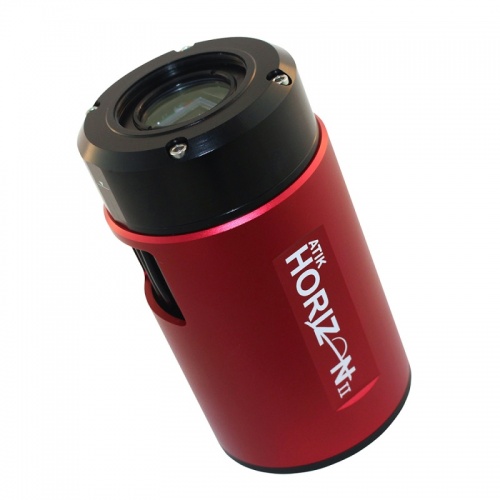
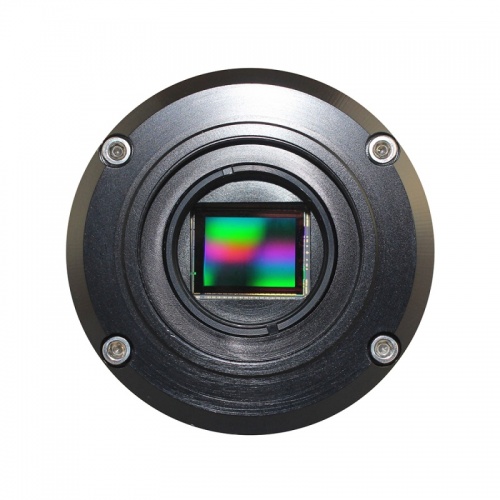
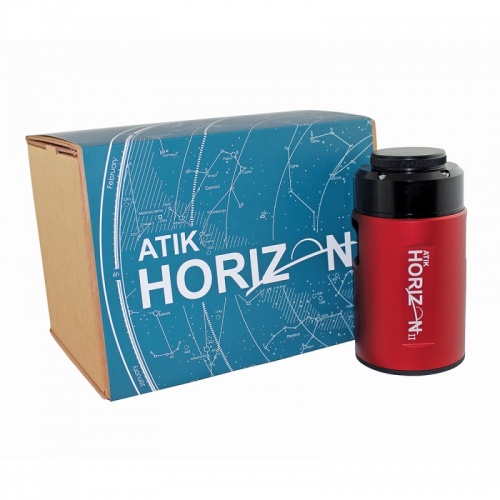
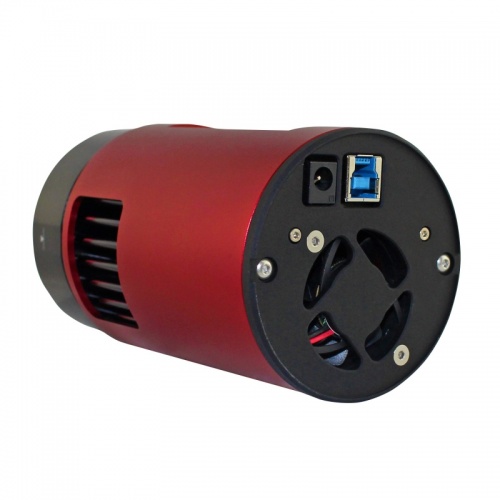
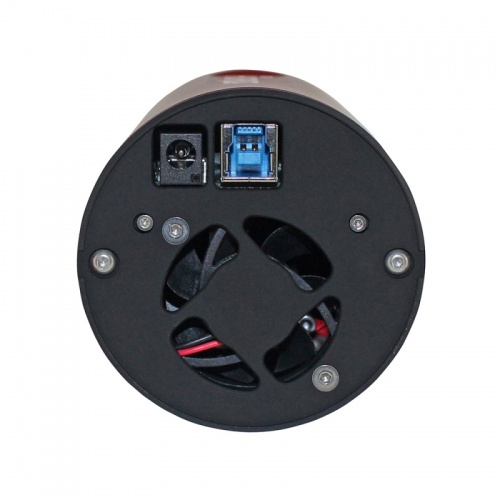

 Fast & Reliable Delivery
Fast & Reliable Delivery Helpful & Friendly Staff
Helpful & Friendly Staff Best Prices Online
Best Prices Online 100% Secure Shopping
100% Secure Shopping